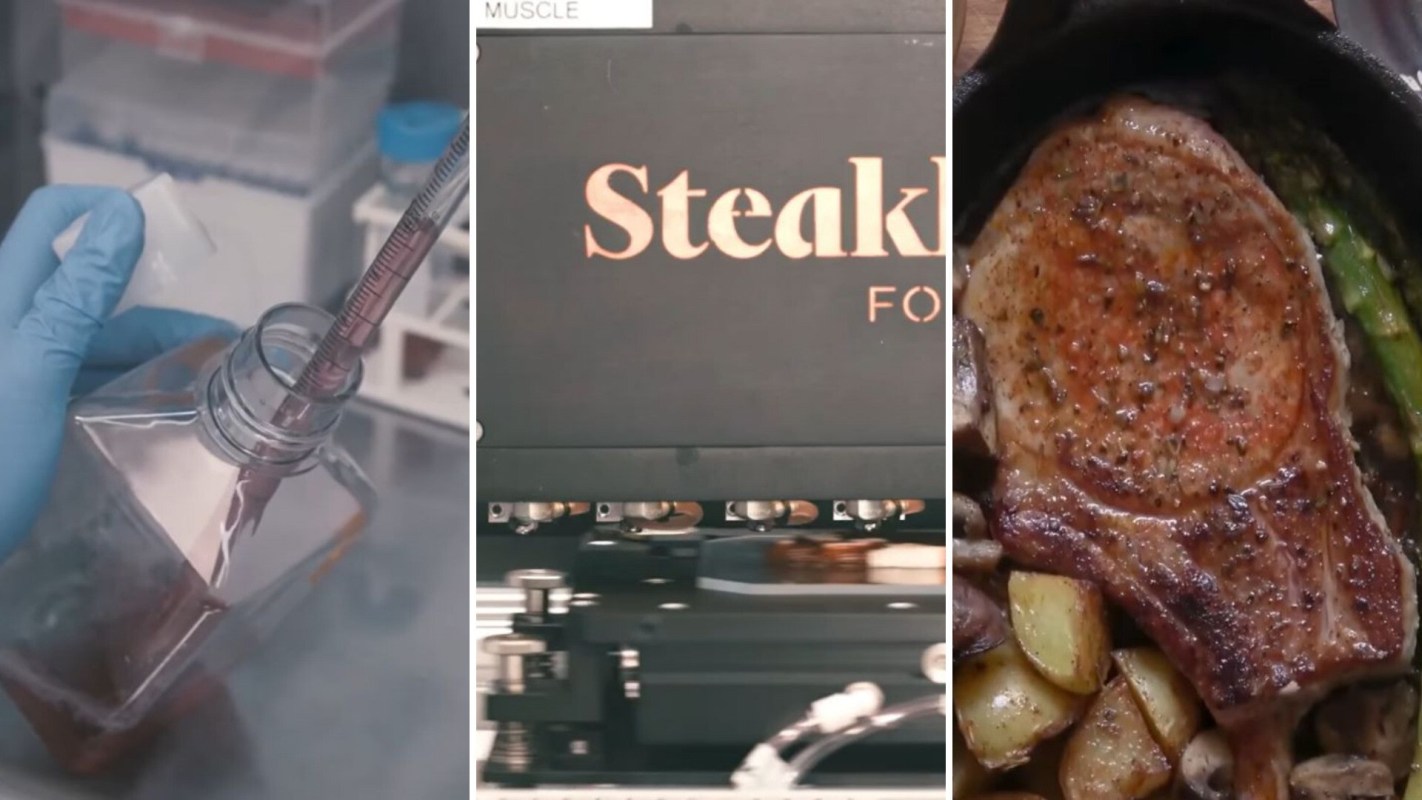Livestock farming is one of the most environmentally harmful industries in the world. But new technological advances could change that, leading to a future where our meat is grown in a lab instead of being raised and slaughtered on a farm.
One company, Steakholder Foods, has developed a manufacturing process that is able to produce "bio-printed" meat on an industrial scale, and it could change the food industry completely.
The process starts with Steakholder's scientists selecting animal stem cells that will yield the most premium cuts of meat. Those stem cells are then grown into muscle and fat cells, which are separated and become the "ink" that is 3D-printed into specific cuts. Those cuts are then incubated for a few weeks.
The company says the 3D-printed cuts of meat are meant to be indistinguishable from farm-raised meat.
Inhabitat reported that this process uses 86% less land, emits 93% less air pollution, and uses 93% less fresh water than typical meat production. Steakholder also noted that stem cells are harvested without harming animals.
A recent study found that people know very little about how much the meat industry contributes to our planet's rising temperatures and its link to increasingly frequent extreme weather events — largely thanks to effective propaganda from the industry.
In reality, livestock accounts for an estimated 14.5% of the planet-overheating gases produced worldwide, according to The Food and Agriculture Organization (FAO) of the United Nations. Plus, clearing land for cattle farms is often responsible for the destruction of the rainforests.
Those consequences are what happens when everything goes according to plan with industrial farming — when things go wrong, it can be disastrous, such as the explosion and fire at a Texas dairy farm that killed 18,000 cows last month.
Bio-printed meat and other meats made from cultured animal cells are not yet available and do not have full regulatory approval in the United States. However, several companies, including Steakholder, are working on technology and waiting in the wings for the moment approval comes through. These include Upside Foods and Vow, which recently created a meatball from extinct mammoth DNA.
Join our free newsletter for easy tips to save more, waste less, and help yourself while helping the planet.








